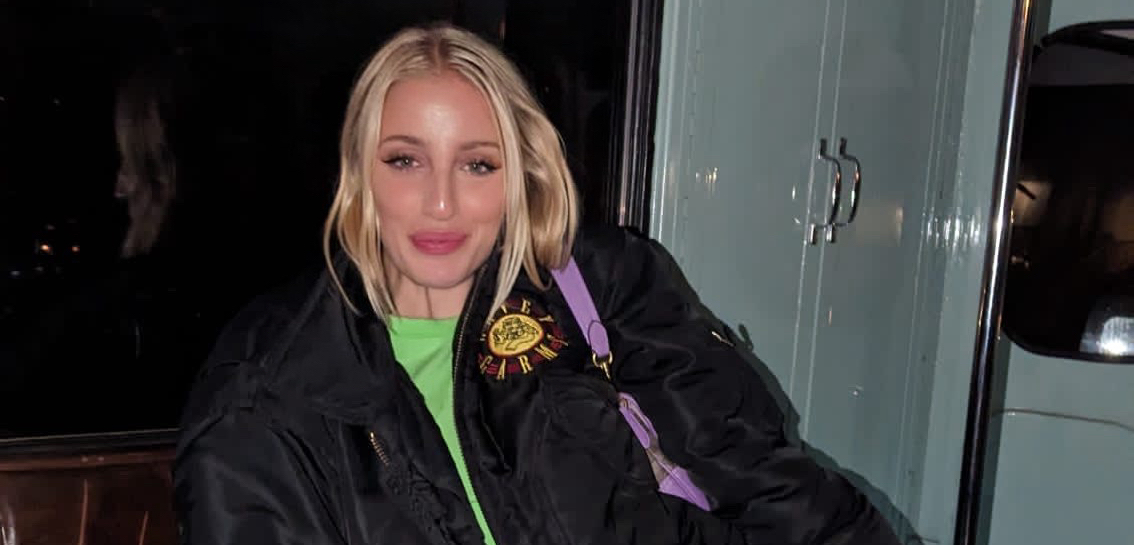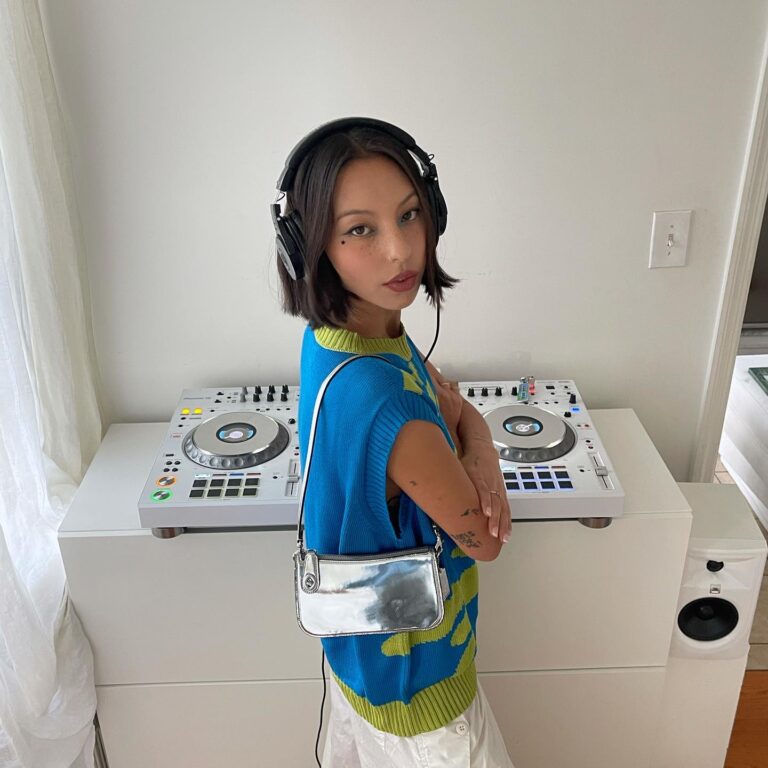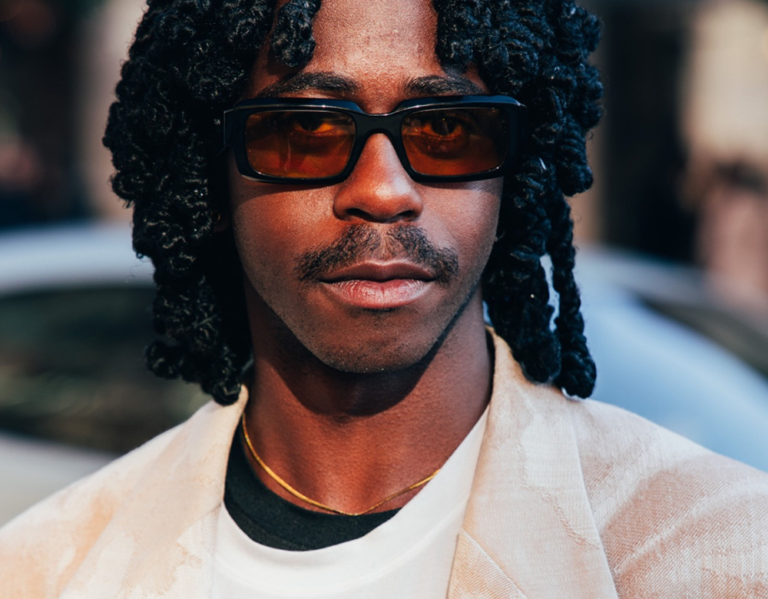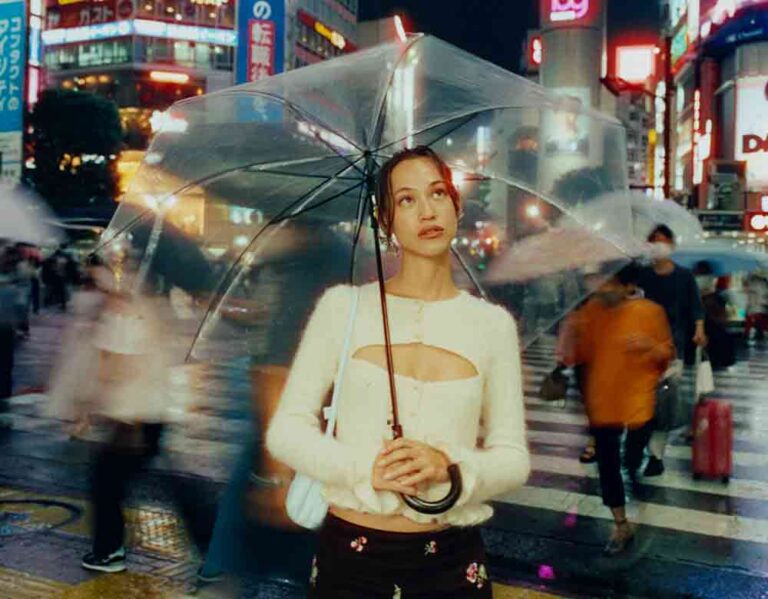Joss Meek, Wired PR, London

Hey Joss, where are you from and how old are you?
I’m from London and always have been. I’m 35.
What’s your job title? And what does this actually mean?
I’m a partner and publicist at Wired PR agency, which was founded by my business partner and best friend, Rachel Campbell, in 2013. We’ve just turned 10 years old. We’re a boutique agency so we keep our roster fairly small, but it means that we can work on everything that we love. We don’t have targets to hit. It’s very much you work as hard as you feel able to work, so if you’re going through a hard time, we can lower down the workload; if you’re feeling like all you want to do is throw yourself into work, we can up it, you know. As long as we’re doing a good job, we never have to over-work, and that in turn breeds a really positive and passionate kind of work environment. Because if you’re invested in something, you’re going to work harder.
What does the day-to-day of that look like? Or does it just depend on what’s going on?
Every day is very different. It could be just emails and calls, pitching to journalists from our desk. It can also be going to shoots or events, or press days. An international artist might come in and we’ll have to do as much press as we can while we have access to them. There’s also a lot of evenings involving gigs, events and parties. Our jobs are constantly adapting and changing as the industry adapts and changes. No one day is the same and I think that really helps to keep things interesting and not feel too monotonous.
"networking sideways is really the best thing to do - making friends that are in the same position as you and building things together, supporting each other."
How did you get into this pathway? Did you always have an interest in music?
I always loved music but I had no idea what PR was. I don’t think they teach you that at school. I was a huge music fan and always surrounded by music growing up, the radio would always be on or my parents would be playing CDs. However, I thought that the only thing I could do was be a music journalist so I spent all my money on magazines like NME, GQ, Mixmag and Q. I did English literature at uni and I wrote for the university magazine, but when I left I decided I’m gonna start my own blog and just talk about all the different music I like, because I love so many different genres. I was into old school hip hop but also, grime, electronic, and more alternative stuff. I’d also go out and listen to an indie band or something. If I got an opportunity to write a review for my website, I’d take it. I’d take whatever I could.
At the same time, I was looking into job roles but I didn’t really know how to get into the industry. I thought that I needed to know someone – like my boyfriend at the time, his dad was a musician, and then we broke up and I was like, oh my god, I’m never gonna get in, this is never gonna work. I just started going to events and making friends with people that ran the blogs, and introduced myself to them like, it’s me, the person that you’ve been talking to online and expanded my network that way. I was also applying for jobs like reception at Sony or Universal or whatever, looking for any jobs that had music attached to it and thinking, if I can just get in the building. I was a bit naive at that stage and thought that you needed to network upwards. What I realised after a while was that networking sideways is really the best thing to do – making friends that are in the same position as you and building things together, supporting each other.
I ended up writing for a lot of different websites while working as a nanny for a family of five and at a pub in the evenings. I was exhausted. I was also doing social media work on the side! I took an internship in music PR with an amazing lady called Jenna Knight, who I will totally shout out for being a real mentor for me at the beginning. I thought this is really nice, because I found it tricky to critique in journalism. I really wanted to support and uplift people and help them build their career, and PR allowed me to do that. I then got really unwell… I got so sick that I couldn’t work, so I had to leave that internship. I was like fuck, I fucked it. I felt like I was never gonna get another in. I ended up living on people’s sofas because I couldn’t make enough money to pay rent. I tried to do another internship but I couldn’t really hack it because I just was so unwell. Then I got an email from Rachel saying she was starting her own thing. We hadn’t met in person but we’d exchanged blog posts and stuff and kind of knew each other from being online. The rest was history, really. I wasn’t able to work more than a few hours a day because of my illness. I was actually living in a homeless shelter at the time because I didn’t have anywhere else to live. But what was really crazy about that period was that I was just doing what I could when I could. I’d be doing an interview at MTV in Camden and then I’d be going back to the homeless shelter. I was like, nobody knows what’s going on but I’m just proper faking it ‘till I make it.
What was the start of Wired like?
Rachel and I really learned on our feet. We both had a bit of PR experience but obviously neither of us had ever run a company before. In the first year I think we probably made about £300 each and we were just like, how are we going to do this? Then, luckily, we took a plunge and went for our first signed record label artist, and this meant that there was a retainer in place. It was with Elli Ingram. We won against other, bigger PR companies. It felt like, okay, this is the start of something.
With that journey, are there certain things that you would come back to keep you going? There must have been moments where you were like, what the fuck am I doing?
The first time I went to Sony and I had a meeting, I remember I went to the toilet and I took a mirror selfie with my Sony visitors pass. Like, oh my god, this is crazy. I was so enamoured by it all and so grateful to be there. At the time, I was single, my dad was super unwell, I had a lot of responsibilities in my life at a very young age. When my dad passed away I really threw myself into work, the productivity was a way for me to process the grief. I loved the work, as a job and an escape. I really think that starting to work at Wired and building that really saved my life because I didn’t think I had much to live for at that stage, to be completely frank. So it felt like wow, how lucky am I to be able to do something that I’m really passionate about and doesn’t feel like a job?
It seems like, purposefully or not, you’ve been able to transmute a lot of difficulty and suffering into working at Wired. It’s really special that you guys clearly have this really strong drive for something that’s a bit more esoteric. What do you enjoy the most about what you do, aside from what you’ve mentioned?
I build the most incredible relationships with young artists, and watching them change their lives and change their family’s lives is the most rewarding thing ever. That’s forever rewarding. Of course you get paid and that’s an incentive but really you’re doing this because you love music and you love people and you want to help people.
"The first time I went to Sony and I had a meeting, I remember I went to the toilet and I took a mirror selfie... I was so grateful to be there."



What are the most challenging things about your role?
Unless you come from a wealthy background where your family can support you, you are gonna have to work two or three jobs. I wish that the industry wasn’t mapped out with internships, but it is. That’s the way it is, and if you want to get into it, you do have to work for free for a bit, which is why it’s important that you find a way to support yourself at the same time. However, I’ve always said, be upfront. Get the job, get the internship, and then say to them, I’m going to need you to pay for my travel, or I’m going to need to pay for my lunch or whatever it is. Because if they’ve already given you it, you know that they want you.
Also, being really open to everyone and kind to everyone. It’s cliché, but you have no idea who that person you were rude to is or who they could be in the future. You’re only as good as your network and, especially in PR, your relationships are everything.
Are there any specific challenges with Wired that come to mind?
In terms of challenges with the job, it’s mainly getting people to see what you see. When you really love an artist and you have a vision, it’s really frustrating when journalists don’t get it. In those moments, it’s about being innovative, trying to think of different, creative ways that you can build coverage. It’s also not a one-size-fits-all situation, and that’s when being mindful about strategy and positioning comes into play. Everybody is unique. Everybody has their own story. So really listening to those stories and building relationships and trust with artists is vital. We often meet artists when they’re really young, and I think building that trust is the most important thing.
Do you have any advice for your younger self?
Because there was a lack of guidance on how to get into the industry, I sort of presumed that getting a degree and going to university was the way that you showed your worth in a professional situation. And I definitely didn’t have the financial stability to go to university and didn’t understand how long that debt would follow me. There’s no harm in me having gone to university, and I learned some great communication skills, but I do wish I had spent those three years getting more experience. I would have been three years ahead, basically.
"I think, beyond the accolades, if you can make money doing what you love, then how amazing is that?"
Okay, last question. In your 10 years doing this, are there any specific things that stick out or that you’re particularly proud of?
When we got offered that first big campaign with Elli Ingram and Island Records, that was a real pinch me moment for both of us. It sounds a bit corny, but watching our artists grow is just so rewarding, like watching Jorja Smith sell out bigger and bigger venues and working with her through that and building her confidence. We’ve looked after Jorja for years now, and that was an early example of an incredible success. Same goes for working with AJ Tracey and him having a huge hit single with ‘Ladbroke Grove’ and watching his albums chart. With Central Cee, that’s my personal first number 1 record working on that with him, that’s been an amazing journey. Anyone giving us the opportunity to work with them is so kind and we’re so grateful. The proudest moments are when you build and grow together. Another example is that I look after Chase & Status, and I used to spend so much money on going to see them live. I’m eternally obsessed with them. Now seeing them with two singles in the top 10 with this Drum ‘n Bass resurgence is legendary.
So you’re now getting to really shape the world you grew up loving. It sounds very full circle.
There are so many people behind the scenes that work with these artists and PR is just one tiny cog in a big wheel. Again, it’s cheesy, but it’s a lifestyle and not really a job, with a lot of devoted people working around the clock. But I think, beyond the accolades, if you can make money doing what you love, then how amazing is that?
LATEST THAT MAY INTEREST YOU





